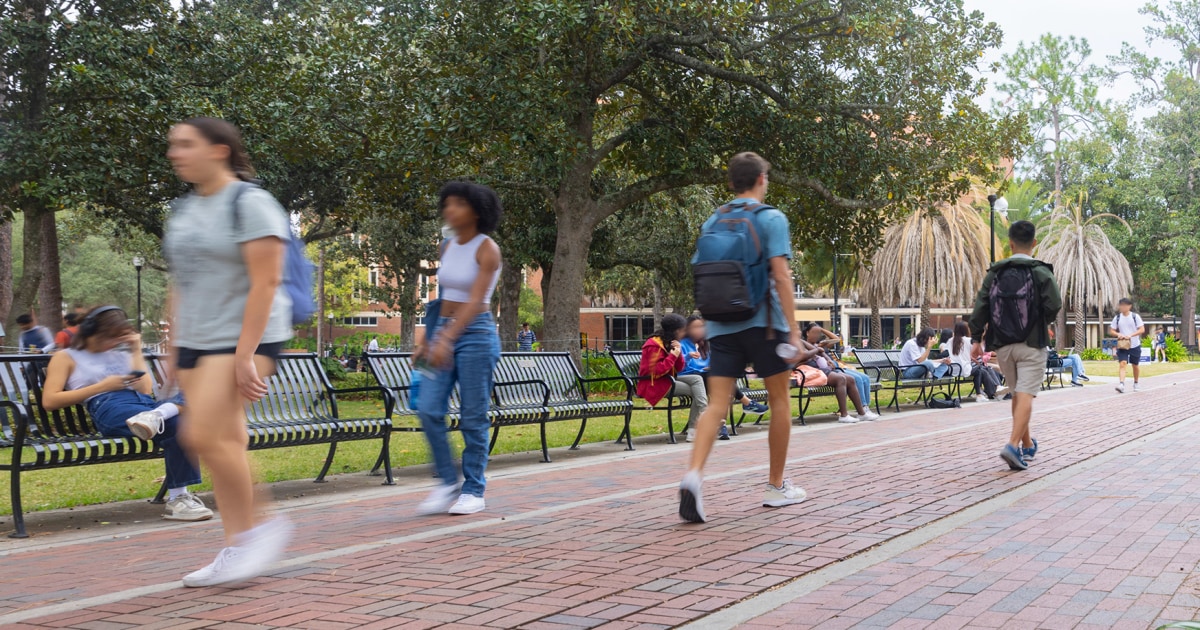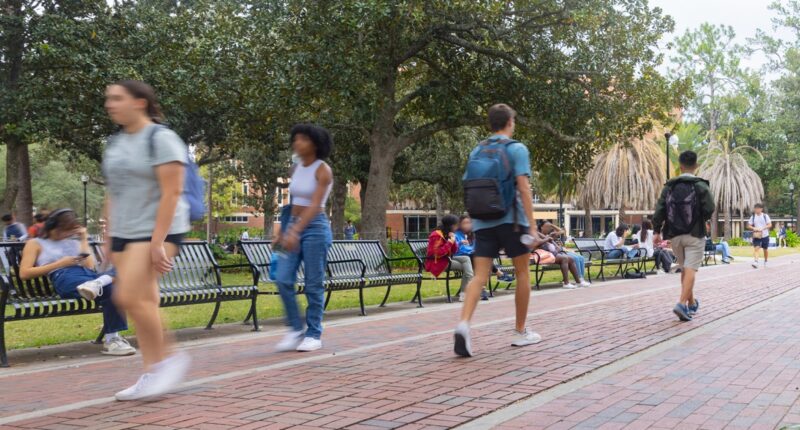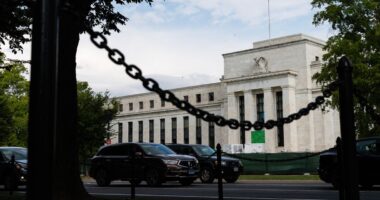
Faculty and staff at public colleges and universities in Florida say they are facing the consequences of a “chilling effect” stemming from a sweeping higher education law defunding diversity programs and restricting race and gender courses.
“It’s a scary time for education,” said Eduardo Padrón, president emeritus of Miami Dade College, who led the institution for almost 25 years. MDC enrolls more students of color than any other U.S. college, including the most Latino students.
“All the progress we have made to be more inclusive in Florida is going away,” said Padrón, who received the 2016 Presidential Medal of Freedom for his efforts to expand higher education and make it more accessible.
Florida Gov. Ron DeSantis, a Republican, signed into law this month a bill banning public colleges and universities from using state or federal funds for programs that “advocate for diversity, equity, and inclusion.” It also bans general education core courses that “distort” historical events or teach “identity politics.”
“What do they mean by identity politics? How would that affect a wide range of courses?” said Nicole Morse, membership and organizing union chair at the United Faculty of Florida’s chapter at Florida Atlantic University. Morse said universities are now wondering if courses focusing on women, for example, or on the history of specific cultural groups or communities could still be taught under the new law.
Morse said the law is “written in such a vague way” that it allows institutions to interpret it in wildly different ways — resulting in contradicting actions that “create a climate of confusion, anxiety and fear.”
Florida is not only home to the nation’s third largest Latino population, but its public colleges and universities are the top institutions enrolling and graduating Latino students in the state, according to Excelencia in Education, one of the country’s leading education think tanks focused on Latino college completion.
The law applies to the 40 public colleges and universities in the state. About a third of them (13) are designated Hispanic-serving institutions — where Hispanic students constitute at least 25% of full-time-equivalent undergraduate enrollment — and another 12 Florida colleges and universities may soon meet that standard, according to Santiago.
“There is concern about the chilling effect, most importantly for institutions that are trying to diversify, because they’re hesitant to do anything without getting clear direction,” said Deborah Santiago, Excelencia in Education’s chief executive officer and co-founder.
Paul Ortiz, a history professor at the University of Florida and a member of the United Faculty of Florida, recalled during a virtual education conference this month the “panic” felt across colleges and universities when an earlier version of the bill was introduced in the state House in February.
Thinking that “gender studies was over,” university administrators started brainstorming contingency plans to move courses and professors into other departments. Ortiz said the union intervened and told administrators they couldn’t change the terms and conditions of their employment based on their collective bargaining agreement.
That was the start of administrators rushing to comply in anticipation of the law, according to Morse. “They don’t want to be on the wrong side of the law because it comes with such significant threats to performance funding,” she said.
But the language in the final version of the law still provides little guidance to administrators looking to preserve existing programs while also complying with the law.
“People are interpreting the bill based on the public statements of the governor,” Morse said.
A news release from DeSantis’ office said the new law “takes several steps to prevent woke ideologies from continuing to coopt our state universities and state colleges,” and DeSantis has said diversity, equity and inclusion “is coming to an end in the state of Florida.”
The governor’s office did not respond to a request for comment on whether it had any plans to provide additional guidance or clarification on the new law.
Those most affected by the ban on diversity, equity and inclusion programs are university and college staff members in charge of running such programs, Ortiz said.
An affected professional staffer at Florida International University, whose name is being withheld due to concerns over potential repercussions from the new law, said many in the state are scared of their “jobs being taken away.”
“The feeling of being a staff member now, it’s like a shame thing or like ‘We’re going to hide you away,'” said the staffer, who is waiting to hear back from university leadership about her position, which provides university-wide support around diversity, equity and inclusion initiatives.
Even though the program the staffer works for is covered by student fees, the salaries of the program’s employees are covered by state funds that will go away once the law goes into effect.
“If there’s no professional staff designated to implement those programs, I don’t know who would do them,” the staffer said. “I’m just upset that those things will potentially go away for students, especially in the climate of Florida.”
The law also directs the Board of Governors, which are mostly members DeSantis appoints, to include in periodic reviews of its institutions a directive on university programs “based on theories that systemic racism, sexism, oppression, and privilege are inherent in the institutions of the United States and were created to maintain social, political, and economic inequities.”
“The state of Florida has made it clear that it wants to eliminate our ability to analyze and understand the roots of oppression and the possibility of renewal and social movement building,” said Ortiz, the author of “Emancipation Betrayed: The Hidden History of Black Organizing and White Violence in Florida From Reconstruction to the Bloody Election of 1920” and a co-editor of “Remembering Jim Crow: African Americans Tell About Life in the Segregated South.”
Source: | This article originally belongs to Nbcnews.com









